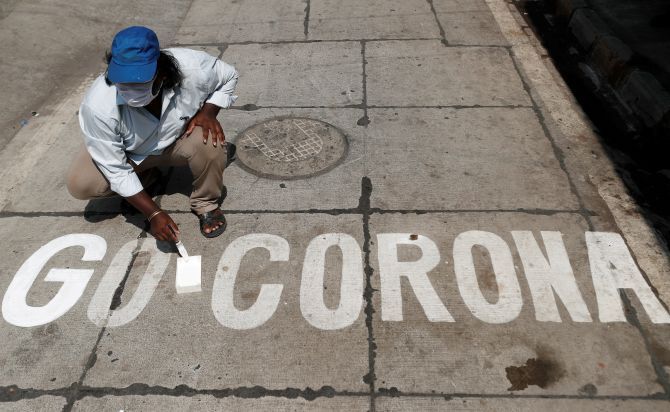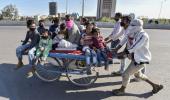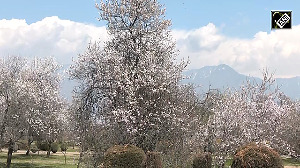Forbidding clouds have gathered over the scenic Andaman and Nicobar Islands with six cases of deadly COVID-19 being reported so far, raising fears about the five endangered tribes getting afflicted by the disease.

With the tribes together accounting for less than 1,000 people, largely disconnected from the rest of the world and having very low immunity levels, anthropologists fear they could get extinct should the pandemic spreads its tentacles across the islands.
Andaman and Nicobar is a group of 572 islands at the junction of the Bay of Bengal and the Andaman Sea of which only 37 are inhabited.
All the six cases have been reported from the Port Blair region.
Although the Union Territory administration has assured that all precautionary measures have been taken to protect these tribes from the coronavirus, anthropologists are apprehensive about them getting infected because of contact with the outside world.
The islands are home to five of the most endangered tribes of the world- Great Andamanese, Jarawas, Onge, Shompen, and the Sentinelese. They have been living a seclusive existence for thousands of years with little or no contact with the outside world.
The combined population of these tribes stands at around 900.
According to Anthropological Survey of India (ASI) sources, the number of Great Andamanese tribe stands at around 60, Onge 124, Sompen 200, Jarawas 520 and Sentinelese 60.
Madhumala Chattopadhaya, a renowned anthropologist, the first woman from the outside world who came into contact with the Jarawas and Sentinelese, feels they are vulnerable to the affliction and could face possible extinction if immediate steps are not taken to protect them.
These tribes are one of the most vulnerable populations, and if they get exposed to this Coronavirus they will face a complete extinction. Immediate steps should be taken for their complete isolation.
Areas inhabited by them be locked down completely, Chattopadhyay, a joint director in the Union Ministry of Social Justice and Empowerment, told PTI.
Chattopadhyay's views were echoed by another anthropologist Kanchan Mukhopadhyay, who had served in the region.
He said the vulnerability of these tribals was greater than the rest because their immunity levels are very low.
"Most of these tribes have very weak immunity. There have been previous instances when contact with outsiders has led to epidemics. The area has seen outbreak of various diseases such as measles and flu because of this," he said.
According to the anthropologist, measles outbreak among the Great Andamanese tribe in the middle of the 19th century had almost wiped out the entire population, with only a handful managing to survive.
When contacted, a senior official of the Tribal Welfare Department, Andaman & Nicobar Islands, who preferred not to be identified, told PTI that extra precautions have been taken for protection of these tribes after the COVID-19 outbreak.
Convoys and individual vehicles passing through the tribal reserve areas are not being allowed any more.
Only the field staff, who are declared completely fit after medical checks, are allowed to visit the areas to monitor these tribes from a safe distance and also carry food supplies, the official said.
"We are keeping a watch. If anybody is found sick or has any symptoms (of coronavirus infection), they will be immediately shifted to hospital," he said.
According to the ASI, the Jarawas and Sentineles, depend on their own means for survival like picking fruits and herbs and hunting, whereas the Great Andamanese, and a small section of Onge and Sompen tribes, depend on rations supplied by the government.
The head of the Anadaman and Nicobar Regional centre of ASI, Nilanjan Khatua, feels although these tribes are vulnerable to infectious diseases due to their tradition of living in close knit communities, he hoped the steps taken by the government will ensure they are unharmed.
The ASI, he said, is also closely monitoring the evolving situation.











 © 2025
© 2025